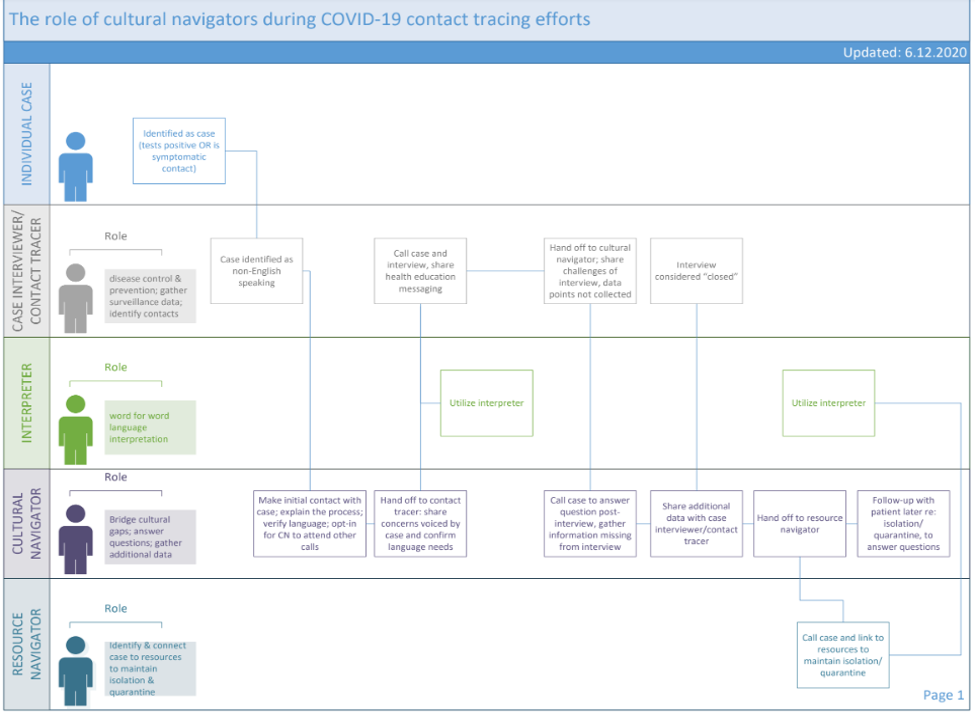In the COVID-19 public health response, some sites report low attempts to follow-up and low response rates within refugee, immigrant, and migrant (RIM) communities. This leads to inaccurate data for case investigators and contact tracers. Likewise, it is also essential to provide information and services via channels that community members actively use and trust.
Cultural Navigators
Cultural navigators are community partners who serve as a trusted and confidential source of information between community members and public health, particularly during case investigation and contact tracing (CICT). Cultural navigators are deeply rooted in their communities, often members of the community themselves, and are uniquely positioned to bridge cultural and linguistic knowledge gaps for health departments.
Health departments work with community-based organizations (CBOs) to seek trusted multilingual and multicultural partners to serve as "cultural navigators." These cultural navigators support the response, spread messages, and join public health interviews but do not serve as case investigators. The cultural navigator would optimally be the first point of communication in the preferred language. They brief RIM community members on what to expect if the health department calls them and join the public health interview to provide a bridge between public health and the case. They can also follow-up with the household after contact with the health department.
Partnering with Cultural Navigators in Colorado
The Colorado Department of Human Services' State Refugee Health Coordinator and the Colorado Department of Public Health and Environment's Refugee Health Program collaborated with CBOs to identify cultural navigators within their community. The navigators do not function as case investigators or interpreters; instead, they serve as a trusted and confidential source of information during the case interview and pre-and post-interview communication with the case. To maintain trust and confidentiality in their role, they do not serve as language interpreters and can follow-up during or after quarantine. The community navigators are working to implement a rotating on-call system where trusted community members can answer questions about COVID-19 and the case investigation/contact tracing process. They also include some informal interview questions about vaccine hesitancy to get a finger on the pulse within communities.
The partnership allows the addition of a navigator or CBO representative to health department teams to review and provide feedback on case investigations, control measures, and health education with a cultural lens. Technical assistance and consultative services to epidemiology teams within public health agencies have aided in vaccine clinic planning. The direct connection to navigators allows for dialogue with RIM community members before testing and vaccination events. Technical assistance is also offered to outbreak teams and, by extension, with businesses involved in outbreaks. A similar model of adding a navigator or CBO representative facilitates reviewing and providing feedback on the investigation approach.
Additional Resources
CDPHE flow diagram of how cultural navigators connect to the systems (see below)
